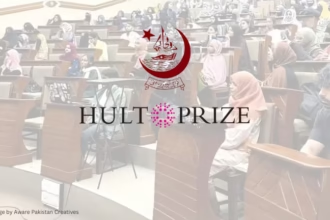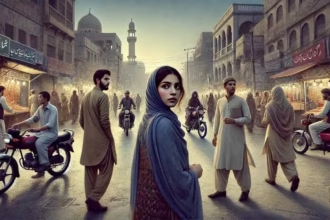As awareness amongst the public regarding social issues increases, the lens of cynicism through which the nation views Pakistan police force thickens. The adjectives “corrupt”, “sluggish”, and “futile” have long been associated with law enforcement agencies in Pakistan. With stories about Pakistan’s police system’s incompetency reverberating worldwide, the question arises: “Are Pakistan’s law enforcement forces too crooked to transform?”
An effective police force serves as the bulwark of law enforcement and public safety, ensuring the protection of citizens and upholding the rule of law. A well-organized and proficient police force is pivotal in deterring crimes and creating a secure environment for individuals. By upholding the principles of fairness and equality, a strong police force ensures that citizens’ rights are protected and justice prevails. An efficient police force reinforces confidence in the government’s ability to safeguard its people, making it a prerequisite for a harmonious and law-abiding society.
Despite celebrating its freedom for 76 years, Pakistan has yet to break free from the shackles of exploitation by colonialists and have competent constabularies. Since 1947, policymakers have failed to decipher the importance of law enforcement agencies, which is reflected in their inability to bring about successful reforms to the policing system. The byproduct of this is an alarming crime rate; more than 400,000 crimes were reported in Punjab between January and June 2023, while the city of Peshawar alone experienced a 136% surge in its crime rate. These statistics prompt multiple questions, the most crucial one being about the causes of the inefficiency of Pakistan’s police system.
Factors such as the police force being highly understaffed, underequipped, and the abysmal condition of infrastructure such as roads account for the impotency of Pakistan’s law enforcement agency. Pakistan’s law enforcement forces have nearly 570,000 officers, with one policeman for every 304 people. Though this number satisfies the UN’s standards, it is still less than adequate considering Pakistan’s crime rate. Furthermore, Punjab’s police force consists of 170,000 policemen but only 5,000 bulletproof vests and 82,000 weapons.
The future of law enforcement in Pakistan depends on reforms that address the problems of corruption, inefficiency, and underfunding.
An aspect often overlooked is the link between infrastructure and the police’s ability to execute their duties satisfactorily. Inadequate infrastructure is interconnected with low mobility, which can negatively impact law enforcement agencies in numerous ways. An effective police force needs to be proactive in preventing crimes, rather than responding to incidents after they occur. With low mobility, it becomes challenging for police officers to patrol and monitor rural areas. This reduces the deterrent effect that a visible police presence can have on potential offenders. Poorly maintained roads or a lack of telecommunication networks can limit the mobility and communication of police officers. This can hinder their ability to reach crime scenes or respond to emergency situations in a timely manner. Moreover, immobility can be a concern during natural disasters, where the police force’s ability to quickly deploy personnel and resources to affected areas is restricted.
Poor infrastructure implies a lack of funds and resources allocated for the police force. Lack of funds translates to little investment in new infrastructure projects and no modernization or maintenance of current infrastructure. A Chief Investigation Officer (CIO) informs, “Although, in certain cases, we got information from our sources that the criminal is living in Lahore or any other city, due to lack of finances or economic resources, police cannot ensure the arrest of the criminal within due time.”
Conclusively, developed infrastructure provides the framework for efficient law enforcement. Well-maintained roads aid police in patrolling and responding to emergencies quickly, while reliable communication networks enable coordination and make it easier for policemen to contact one another. The link between infrastructure and the police force is crucial for societies eager to tackle crime and uphold the law. By prioritizing this correlation, Pakistan can pave the way for a prosperous and crime-free future for generations.







